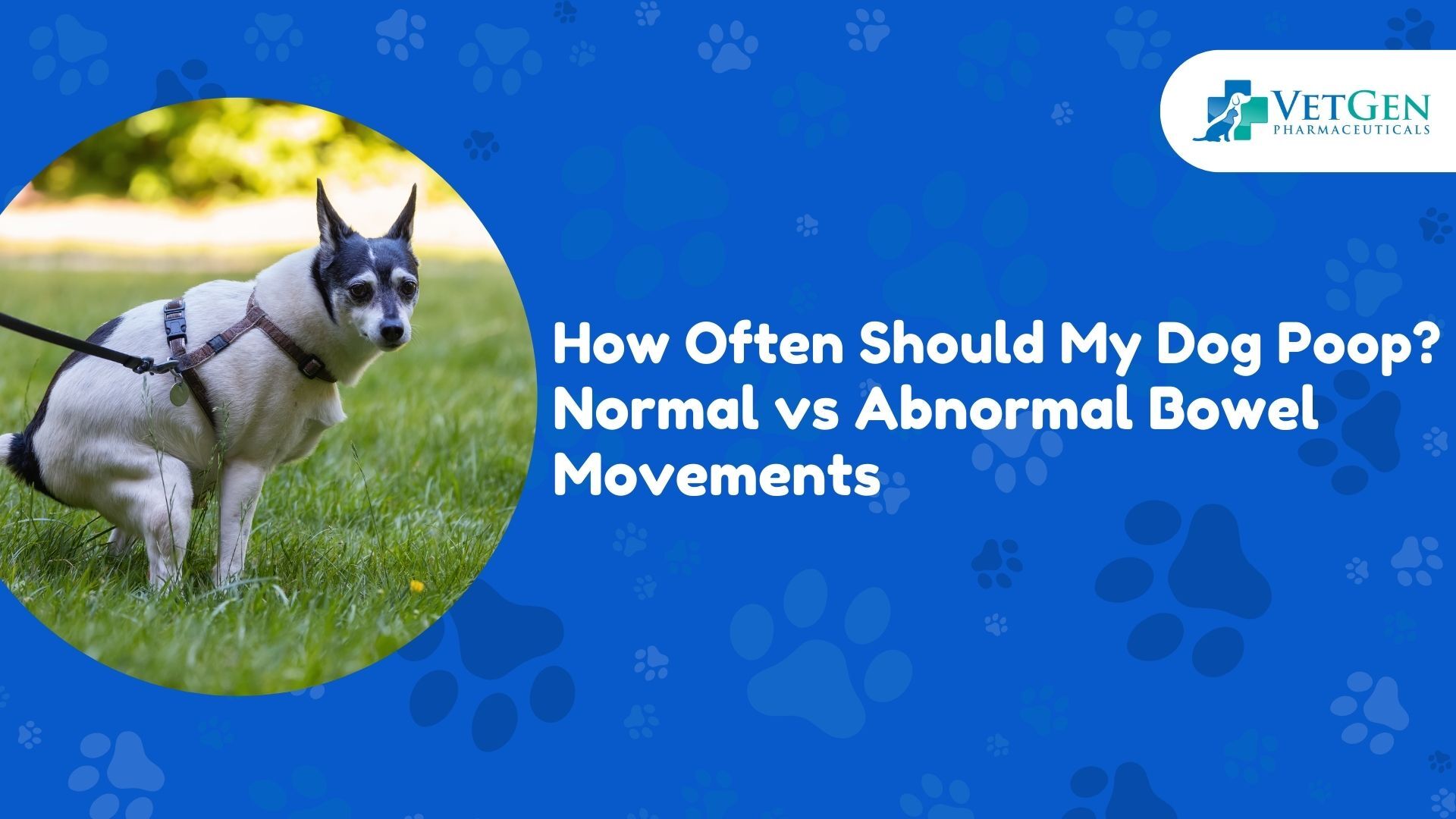Are you a pet owner and wondering how often should my dog poop. To ensure your dog’s digestion is okay you need to check on the bowel movements of your dog. The number of times a dog defecates is determined by diet, age or activity levels of the dog in question.
On this blog, we will describe what is normal and what is concerning and what may cause concern about your dog’s bowel movement.
How Your Dog Digests: Bowel Movements
The bowel movement is actually the last step of your dog’s digestive system and it is a complicated one. Quantitative food, sufficient water intake, good health all enhance the digestion process. To determine how often should my dog poop, you have to factor these in.
Normal Bowel Movements
Dogs normally pass stool once up to five times a day. The number will depend on the following factors:
- Food: Sufficient quality of foods generally results in fewer bowel movements; low quality foods or excessive fiber may cause increased number of bowel movements.
- Age: It is actually normal for puppies to stool more than adults, just because of the feeding habits; puppies feed more often and have higher metabolism rates.
- Size and Breed: Small-sized dogs perhaps use the bowel less frequently than the large breeds in dogs do.
- Activity Level: Usually, dogs with a higher level of activity are used to having a bowel movement in a regular manner than the less active ones.
A healthy adult dog will poop between 1 to 3 times a day. So if you are asking, how often should my dog poop? And they fall within this range; it’s probably nothing to worry about.
What Does Healthy Dog Poop Look Like?
Not only does the number of the bowel movements your dog has inform you much, but also the texture, color and form of the feces – consistency also does. Here are the characteristics of healthy poop:
- Consistency: Tighter, recognizable, and not too rigid or too soft
- Color: Healthy brown; although it will depend on the diet the shade of skin may slightly vary.
- Shape: Natural passage and normal passage pressure with a log shape.
Irregular Bowel Movements
Sometimes, abnormal bowel movements can manifest as digestive or other health issues. If your dog starts to poop more often or less frequently, if you see a change in the consistency or color of poop, then it is very important to observe them.
Symptoms of Abnormal Bowel Movements
- Diarrhea: If your dog has loose or watery stool, this could mean an upset stomach, food intolerance, or infection. Diarrhea in dogs can mean a more serious situation in severe cases.
- Constipation: This occurs when your dog strains stools or produces small, hard stools, which can imply various health problems. Dehydration, inadequacy of fiber, or other health issues could cause these symptoms.
Some of the warning signs include:
- Bloody Stool: This is a red flag and should be scrutinized promptly. If it’s red, blood may indicate infections, injuries, or other serious conditions such as cancer.
- Color Change: Black, tarry stool can be a sign of internal bleeding. Yellow or greenish stool may represent issues with the liver or the gallbladder.
It considers signs that make you realize the time to ask how often should my dog poop? And call the vet if anything seems different.
Factors That Influence The Pooping Frequency Of Your Dog
The bowel movements of your dog can be determined by several factors. These will guide you in knowing how often does my dog poop? If you measure them by the true life of your pet.
1. Changes in Diet
Switching the diet of your dog can help you realize how frequently your dog will defecate. High-fiber diets in dogs will be successful somewhat more frequently, for example, than low-residue ones. Some digestive upset may occur, so it is advised to introduce new foods slowly.
2. Hydration
It contains hydration as it should help in digestion of your pet dog. Constipation then takes its place when it comes to easily dehydrated dogs, so it follows that there is lessening bowel movements. It should always have fresh water.
3. Exercise
This is also important because a dog that exercises regularly will have somewhat more progressive bowel movement than that which does not exercise. The activity helps engage muscles that would make the digestion system work harder hence facilitating regular bowel movement in your dog.
4. Age and Health Conditions
For instance, elderly dogs will have diarrhea or constipation in dogs at times because they fall ill, and their bones and gut will be affected by arthritis. Young dogs defecate frequently, particularly within a half an hour before or after eating.
When to Worry Over Your Dog's Poop
Now that we have defined what is normal and abnormal bowel movements, it is time to know what you should be bringing to the attention of your vet. While changes are a natural part of life; big-affected or recurring health changes may be symptoms of a significant problem.
- More Than Five Times Daily Bowel Movements: This could suggest that your dog is ingesting something that your dog is not tolerating well, or maybe this is a symptom of some underlying medical condition.
- Going Longer Than 48 Hours Without Feces Elimination: This is a symptom of constipation that can cause discomfort and may lead to other worse health conditions.
- Pooping changes in frequency with shocking instantaneity: If your dog was pooping twice a day and is now pooping four or more times in one day, that’s worth a look.
- Vomiting with diarrhea: This indicates a very serious kind of gastrointestinal infection, poisoning, or other items.
Conclusion
How often does a dog poop? Varies depending on diet, age, and level of activity. Most often, a dog poops between one to three times per day; however, consistency, color, and other behavioral factors should all be monitored to detect any health problems. If you see anything going wrong, check with your veterinarian to ensure your dog continues to thrive happily and healthily.
Frequently Asked Questions
How long does it take for my dog to defecate following the introduction of new food?
If a fresh type of dog food is provided, the dog may produce bowel movements more often or less regularly for a couple of days. Gradual diet changes can prevent dramatic changes.
I haven't seen my dog defecate for two days. What should I do?
If your dog has not had a bowel movement for over 48 hours, technically, that is a case of constipation. Promote water intake and get to your veterinarian if this persists.
Can stress impact how often my dog has bowel movements?
Yes, stress affects your dog’s gut, which will either make them have diarrhea or constipation. If your dog seems stressed, try to identify ways to reduce the stressors on the dog’s environment.






